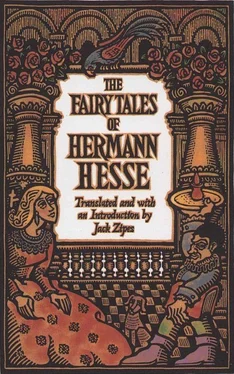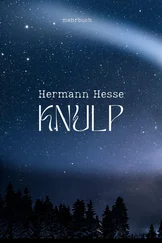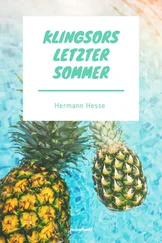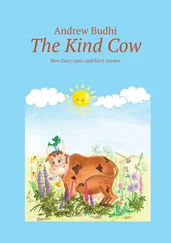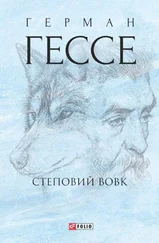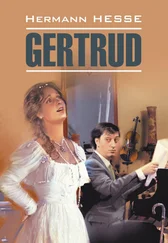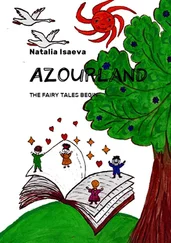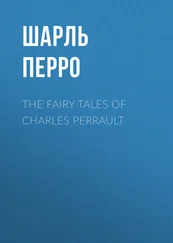Hermann Hesse - The Fairy Tales of Hermann Hesse
Здесь есть возможность читать онлайн «Hermann Hesse - The Fairy Tales of Hermann Hesse» весь текст электронной книги совершенно бесплатно (целиком полную версию без сокращений). В некоторых случаях можно слушать аудио, скачать через торрент в формате fb2 и присутствует краткое содержание. Год выпуска: 1995, ISBN: 1995, Издательство: Bantam Books, Жанр: Классическая проза, Сказка, на английском языке. Описание произведения, (предисловие) а так же отзывы посетителей доступны на портале библиотеки ЛибКат.
- Название:The Fairy Tales of Hermann Hesse
- Автор:
- Издательство:Bantam Books
- Жанр:
- Год:1995
- ISBN:9780553377767
- Рейтинг книги:5 / 5. Голосов: 1
-
Избранное:Добавить в избранное
- Отзывы:
-
Ваша оценка:
- 100
- 1
- 2
- 3
- 4
- 5
The Fairy Tales of Hermann Hesse: краткое содержание, описание и аннотация
Предлагаем к чтению аннотацию, описание, краткое содержание или предисловие (зависит от того, что написал сам автор книги «The Fairy Tales of Hermann Hesse»). Если вы не нашли необходимую информацию о книге — напишите в комментариях, мы постараемся отыскать её.
The Fairy Tales of Hermann Hesse — читать онлайн бесплатно полную книгу (весь текст) целиком
Ниже представлен текст книги, разбитый по страницам. Система сохранения места последней прочитанной страницы, позволяет с удобством читать онлайн бесплатно книгу «The Fairy Tales of Hermann Hesse», без необходимости каждый раз заново искать на чём Вы остановились. Поставьте закладку, и сможете в любой момент перейти на страницу, на которой закончили чтение.
Интервал:
Закладка:
Without thinking about what he was doing, Ziegler took a tiny globule, something like a pill, in his hand. It was dried-out and weightless. He turned it between his fingers, and as he was about to put it down, he heard footsteps behind him. He turned around. Another visitor had entered the room. Ziegler was ashamed that he was holding the tiny globule in his hand, for he had definitely read the warning sign that prohibited such things. So he closed his hand, stuck it into his pocket, and left the room.
Only when he reached the street did he remember that he still had the pill. He pulled it out and thought about throwing it away. But before he did, he held it up to his nose and smelled it. Since it had a faint smell like tar that delighted him, he put the tiny globule back into his pocket.
Soon afterward he went into a restaurant, ordered something to eat, thumbed through some newspapers, adjusted his tie, and glanced at the other guests, sometimes with respect, sometimes with condescension, depending on how they were dressed. Since the meal was taking a while, Ziegler took out the alchemist’s pill that he had inadvertently stolen and smelled it. Then he scratched it with the nail of his index finger. Finally he yielded to a childish desire and stuck it into his mouth. Within seconds it began dissolving, and since the taste was not unpleasant, he swallowed it down with a sip of beer. Right after this the waiter brought his meal.
At two o’clock the young man jumped off the trolley, went to the entrance of the zoo, and paid for a Sunday ticket. He went into the monkey house with a friendly smile on his face and stopped in front of the large chimpanzee cage. The big ape blinked, nodded at him in good humor, and spoke the following words in a deep voice: “How’s it going, my dear brother?”
Repelled and horrified, the visitor turned quickly away and heard the ape cursing at him as he departed.
“The guy’s still proud! Flatfoot! Idiot!”
Ziegler hurried over to the long-tailed monkeys, who were dancing uninhibitedly and screaming, “Give us some sugar, comrade!” But when he did not have any sugar, they became angry, mimicked him, called him a poor devil, and bared their teeth at him. Ziegler could not stand it. Stunned and confused, he fled the monkey house and headed for the moose and deer, whose behavior he expected would be much nicer.
A large splendid elk standing near the fence looked at the visitor. Now Ziegler felt deeply horrified, for ever since he swallowed the magic pill, he had understood the language of animals. So it was with the elk, who spoke with his eyes — two large brown eyes. His silent glance expressed majesty and mourning, and he showed the visitor how terribly he despised him and how superior he was to him. Indeed, Ziegler read in the silent majestic glance of the elk that he himself was nothing but dirt, a ridiculous and disgusting beast even with his hat, stick, pocket watch, and Sunday suit.
Ziegler fled the elk and went to the mountain goats. From there to the chamois, to the llama, to the gnu, to the wild boars, and to the bears. None of these animals insulted him, but they did show their disdain. He listened to them and learned from their conversations what they thought about human beings. It was terrible what they thought. They were particularly amazed that, of all things, these ugly, stinking, worthless, two-legged creatures were allowed to run around freely in their preposterous disguises.
He heard a puma hold a conversation with its cub that was full of dignity and objective wisdom seldom heard among human beings. He heard a handsome panther comment on the pack of Sunday visitors, and he was short and to the point, using speech in an aristocratic manner. He looked the blond lion straight in the eye and learned how large and wonderful the wild world was where there are no cages or human beings. He saw a falcon sitting on a dead branch, sad and proud, in torpid melancholy, and he saw the bluejays bear their captivity with dignity, a shrug of the shoulders, and humor.
In desperation, stunned and torn from all his usual ways of thinking, Ziegler turned once again to human beings. He looked for a glance that would show understanding of his predicament and anxiety. He listened in on conversations and tried to catch some consoling words, something comprehensible, something that would do him good. He observed the behavior of the numerous visitors at the zoo, trying to locate signs of their dignity, character, nobility, and superiority.
But he was disappointed. He heard their voices and words, saw their movements, gestures, and looks, and since he now saw everything through the eyes of an animal, he found nothing but a pretentious, lying, ugly society of creatures who seemed to be a preposterous mixture of different types of beasts.
Ziegler wandered frantically about, feeling completely ashamed of himself. He had long since thrown his square stick into the bushes, followed by his gloves. But when he now tossed his hat from his head, took off his boots, ripped off his tie, and pressed himself sobbing against the fence of the elk stable, he caused a great sensation, was taken into custody, and eventually brought to an insane asylum.
The City
(1910)

“We’re moving onward!” exclaimed the engineer after the second train arrived, full of people, coal, tools, and food, on the new tracks that had been laid down the day before. The prairie glowed dimly in the yellow sunlight. High mountain forests stood on the horizon in the blue mist. Wild dogs and astonished buffalo watched as the hustle and bustle began in the desolate spot, as flecks of coal and ashes and paper and tin appeared in the virgin country. The first airplane shrieked through the horrified land. The first rifle shot thundered and echoed in the mountains. The first anvil sounded, with a high pitch from the quick pounding of the hammer. A house made of tin arose, and on the next day one made of wood, and others, and every day new ones, and soon stone houses as well. The wild dogs and buffalo stayed far away. The region became tame and fertile. Already in the first spring there were rolling green fields filled with fruit. Farms, stables, and barns rose into the air. Streets cut through the wilderness.
The railroad station was finished and dedicated, followed by the government building and the bank. Hardly a few months had passed before new sister cities grew up nearby. Workers, farmers, and city people came from all over the world. Businessmen and lawyers, preachers and teachers came. A school was founded, three religious communities, two newspapers. In the west oil was discovered. The young city became rich. After another year there were pickpockets, pimps, burglars, a warehouse, a prohibition league, a Paris tailor, a Bavarian beer hall. The competition of the neighboring cities increased the tempo. Nothing more was missing, from movie theaters to associations of spiritualists. One could buy French wine, Norwegian herring, Italian sausages, English textiles, and Russian caviar in the city. Even second-rate singers, dancers, and musicians took their shows to this place.
And culture also came gradually. The city, which had been only a settlement at first, began to develop into a homeland with traditions. There was now a particular way to greet someone, to nod upon encountering someone, that was distinguished from such ways in other cities by its light and gentle manner. The men who had taken part in the founding of the city enjoyed respect and popularity. A small nobility beamed with pride. A young generation grew up. To them, the city already seemed to be an old city that had existed since eternity. The time when the first pounding of a hammer had sounded, the first murder had been committed, the first church service held, the first newspaper printed, all this lay far in the past — it was already history.
Читать дальшеИнтервал:
Закладка:
Похожие книги на «The Fairy Tales of Hermann Hesse»
Представляем Вашему вниманию похожие книги на «The Fairy Tales of Hermann Hesse» списком для выбора. Мы отобрали схожую по названию и смыслу литературу в надежде предоставить читателям больше вариантов отыскать новые, интересные, ещё непрочитанные произведения.
Обсуждение, отзывы о книге «The Fairy Tales of Hermann Hesse» и просто собственные мнения читателей. Оставьте ваши комментарии, напишите, что Вы думаете о произведении, его смысле или главных героях. Укажите что конкретно понравилось, а что нет, и почему Вы так считаете.
